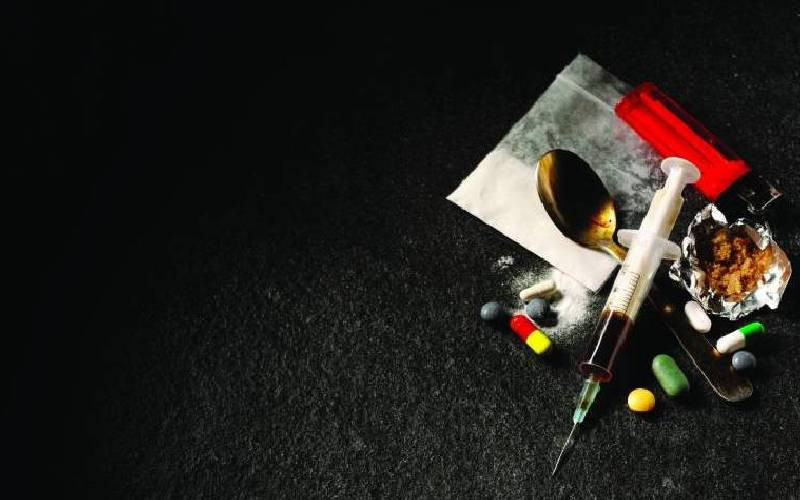By Amos Kareithi
A major controversy pitting one of Kenya’s oldest drug manufacturing company and a government agency over the legality of its drugs is shaping up.
The controversy has brought fears that some pharmaceutical companies could be selling unregistered drugs to Kenyans. Interestingly, the drugs could be passing through the hands of other unsuspecting government agencies.
Should this be so, Kenyans are at risk since some of the companies could be selling drugs whose quality has not been verified by the Pharmacy and Poisons Board.
The controversy is over the registration of some of the drugs manufactured and sold by Dawa Limited, whose registration has allegedly expired and are yet to be registered afresh by the Pharmacy and Poisons Board as required by the law.
 |
Dr Kipkerich Kosgey, the Chief Government Pharmacist. Photos: Jonah Onyango and File/standard |
Early last year, Dawa Limited supplied 14 million tablets of erythromycin, an antibiotic, in 14 batches to Kemsa, which were then supplied to health facilities across the country.
However, the drug had to be recalled after it emerged that it had quality problems.
"It is true there was a problem with erythromycin. The coating was worn out a little. The product was coarse and this allowed moisture in. When complaints came from Kemsa, we checked the process," Dr Kieni explains.
"We asked them to return the product and it was 100 per cent replaced. They have the documents and delivery notes," adds the company’s pharmacist.
Kieni says the company had to buy a film-coating machine so as to rectify the problem.
However, Kemsa’s Public Relations Officer Mr Dominic Kabiru has a different version to the erythromycin saga.
He says Kemsa rejected the product when it was initially delivered.
Stay informed. Subscribe to our newsletter
Rejection of drug
"The erythromycin referred to was rejected by KEMSA at pre delivery stage (while in quarantine) by Quality Assurance Officers when it failed to meet the set quality standards. The supplier was compelled to collect it back in total. Further the matter was reported to the pharmacy and poisons board for appropriate action," Kabiru says.
Dawa’s founding Director, Raju Mohindra, denied any wrongdoing by his company.
He told CCI on telephone that although he was not actively involved in the day-to-day operations of Dawa Limited, he could not allow any malpractices in his company.
"I am a radiologist and a professional. We have employed 160 people and I would not want their future jeopardised. Whatever your reasons or source of information, you must know that we are beyond doing these things," he said.
Kabiru said Kemsa is keen to ensure it does not deal with counterfeits, stressing that it follows stringent procurement procedures, which only allow the most competent, to be awarded tenders.
"Kemsa’s procurement procedure is watertight with regard to quality. All bidders must provide a valid certificate of drug registration by pharmacy and poisons board," he said. He added that companies were expected to provide a valid manufacturer’s GMP (Good Manufacturing Product) certificate as well as a certificate of analysis of the product.
So as to lock out counterfeiters, all bidders must produce proof of authorisation from a recognised regulatory authority to manufacture or sell products they wish to supply to avoid any counterfeits.
During a visit to Dawa industry at Ruaraka, Nairobi, the company’s chief pharmacist and the public relations officer differed over the registration and ownership of Amoxil, another drug, which Dawa had recently supplied to Kemsa.
Musyimi said Dawa has been supplying drugs to the government, citing the most recent deal where 12,000 million 250 mg Amoxil capsules were delivered.
"We also supplied a further 2,400 tins of 500 mg Amoxil. Each tin has 500 capsules. We do a lot of business with government. No company can be contracted by the government if its products do not meet the required standards," he explained.
But in an interesting twist, Kieni, the pharmacist, contradicted Musyimi disowning Amoxil. The Pharmacy and Poisons Board’s records show the drug is yet to be re-registered.
Ownership controversy
"I do not need to look into our records. This is not our product; another company makes it. I am quite sure about this because I am involved in the production process," Kieni told CCI in the presence of Musyimi.
However, in the eyes of the government and its records, Amoxil, an antibiotic, is the product of Dawa.
According Pharmacy and Poisons Board list of registered drugs, Amoxil was first registered as belonging to Dawa Pharmaceutical on November 12,1982 vide application number 1701 for capsules and 136 for syrup. The law says drugs are supposed to be reregistered after every five years.
This controversy over registration of drugs could just be pointer to how many other unregistered drugs are in the market.
 The Standard Group Plc is a
multi-media organization with investments in media platforms spanning newspaper
print operations, television, radio broadcasting, digital and online services. The
Standard Group is recognized as a leading multi-media house in Kenya with a key
influence in matters of national and international interest.
The Standard Group Plc is a
multi-media organization with investments in media platforms spanning newspaper
print operations, television, radio broadcasting, digital and online services. The
Standard Group is recognized as a leading multi-media house in Kenya with a key
influence in matters of national and international interest.
 The Standard Group Plc is a
multi-media organization with investments in media platforms spanning newspaper
print operations, television, radio broadcasting, digital and online services. The
Standard Group is recognized as a leading multi-media house in Kenya with a key
influence in matters of national and international interest.
The Standard Group Plc is a
multi-media organization with investments in media platforms spanning newspaper
print operations, television, radio broadcasting, digital and online services. The
Standard Group is recognized as a leading multi-media house in Kenya with a key
influence in matters of national and international interest.









